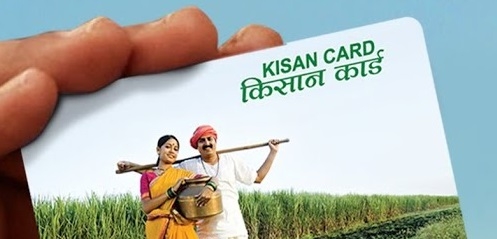The Economic Survey 2024-25, presented by Union Finance Minister Nirmala Sitharaman, reports that 7.75 crore Kisan Credit Card (KCC) accounts were operational as of March 2024, with an outstanding loan amount of ₹9.81 lakh crore. Among these, 1.24 lakh KCCs were issued for fisheries, while 44.40 lakh KCCs were allocated for animal husbandry.
Under the Modified Interest Subvention Scheme (MISS), claim processing has been digitized through the Kisan Rin Portal (KRP) from FY25. By December 31, 2024, over ₹1 lakh crore in claims had been processed. Around 5.9 crore farmers benefitting from the MISS-KCC scheme have been mapped through KRP. Banks are required to allocate 40 percent of their Adjusted Net Bank Credit (ANBC) or Credit Equivalent Amount of Off-Balance Sheet Exposure (CEOBE), whichever is higher, to priority sectors, including agriculture. These measures have reduced reliance on non-institutional credit sources from 90 percent in 1950 to approximately 25 percent in FY22.
Ground-level credit (GLC) to agriculture has grown at a compound annual growth rate (CAGR) of 12.98 percent from 2014-15 to 2024-25. The GLC increased from ₹8.45 lakh crore in 2014-15 to ₹25.48 lakh crore in 2023-24. The share of small and marginal farmers in GLC has increased from ₹3.46 lakh crore (41 percent) in 2014-15 to ₹14.39 lakh crore (57 percent) in 2023-24.
Participation in the Pradhan Mantri Fasal Bima Yojana (PMFBY) has increased, with 24 state governments and 15 insurers involved in FY25, up from 20 states and 11 insurers in 2020-21. Premium rates have declined by 32 percent compared to previous years. The number of enrolled farmers increased to four crore in FY24, a 26 percent rise from 3.17 crore in FY23. The insured area expanded from 500 lakh hectares in FY23 to 600 lakh hectares in FY24, marking a 19 percent increase.
More than 11 crore farmers have benefitted under the PM-KISAN scheme, which provides direct income support. As of October 31, 2024, 23.61 lakh farmers had enrolled in the Pradhan Mantri Kisan Maandhan Yojana (PMKMY), a pension scheme for farmers. Reforms such as e-KYC compliance under the One Nation One Ration Card (ONORC) initiative and credit guarantee schemes for e-Negotiable Warehouse Receipt (e-NWR) financing have been introduced.
Food security measures continue through the Public Distribution System (PDS) and Targeted Public Distribution System (TPDS). The National Food Security Act (NFSA) 2013 covers up to 75 percent of the rural population and 50 percent of the urban population, benefiting 81.35 crore people based on Census 2011 data. The Pradhan Mantri Garib Kalyan Anna Yojana (PMGKAY) provides additional free food grain allocations to around 80 crore beneficiaries. The scheme has been extended for another five years from January 1, 2024.
Agricultural mechanization initiatives under the Sub-Mission on Agricultural Mechanisation (SMAM) have resulted in the establishment of 26,662 Custom Hiring Centres (CHCs) as of December 31, 2024, including 138 CHCs in FY25. A scheme to provide drones to 15,000 Women Self-Help Groups (SHGs) for agricultural services has been introduced, with central financial assistance covering 80 percent of the cost, up to ₹8 lakh per drone.
Under the Agriculture Marketing Infrastructure (AMI) sub-scheme, 48,611 storage infrastructure projects have been sanctioned as of October 31, 2024, with ₹4,795.47 crore disbursed in subsidies. An additional 21,004 projects for other infrastructure have received ₹2,125.76 crore in subsidies. The electronic National Agriculture Market (e-NAM) platform has registered over 1.78 crore farmers and 2.62 lakh traders. As of October 31, 2024, 9,204 Farmer Producer Organizations (FPOs) have been registered, with 4,490 receiving equity grants amounting to ₹237 crore.
To improve food grain storage, steel silos are being developed under a Public-Private Partnership (PPP) model using a Hub and Spoke system. Hub silos have railway siding and container depot facilities, while transportation from spoke silos to hubs occurs by road, and inter-hub movement is conducted via rail.
A pilot project in collaboration with the World Food Programme (WFP) has introduced Flospan mobile storage units in six states: Jammu & Kashmir, Himachal Pradesh, Rajasthan, Mizoram, Uttarakhand, and Chhattisgarh. These units, with a storage capacity of 400 metric tonnes, can be quickly erected in remote areas.
A Smart Warehouse initiative has been launched in partnership with WFP and the Indian Grain Management Research Institute (IGMRI). These warehouses use sensors to monitor temperature, humidity, airflow, and rodent activity, providing real-time data for better storage management.














